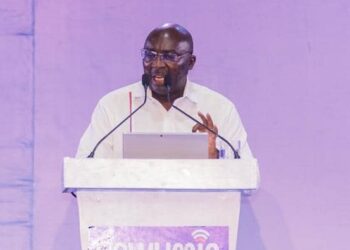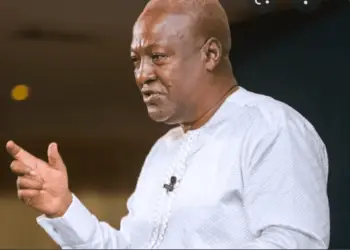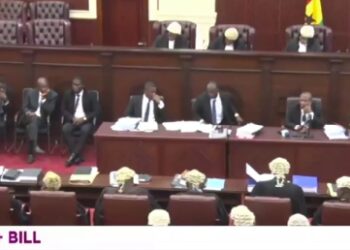The Executive Director of Center for Democratic Development (CDD-Ghana) has criticised the use of the Military to de-escalate protests.
Speaking on recent soldier brutalities at a webinar series organised by the Mandela Washington Fellowship Association of Ghana, Prof H. Kwasi Prempeh said the state is empowering the Military by involving it in civilian law enforcement.
He advised that it’s not smart of government to tow such a line adding that “the moment you give them a thirst of civilian power, you return the country to a period that we do not want to be reminded.”
“When you over militarise civilian law enforcement, when you over militarise civilian dispute, you are drawing the military too much into civilian life. It is not a good thing. There is a reason why that line is respected in almost all countries,” he said.
On Tuesday, June 29, two persons were shot dead, while four others sustained gun injuries after some protesting youth of Ejura Sekyedumase clashed with Military and Police personnel.
After the alleged murder of 40-year-old Ibrahim Mohammed, aka Kaaka, the youth say they are willing to sacrifice their lives until they get justice for him.
Although the Police told them that two persons have been arrested in connection with the crime, the agitated protestors said it was just a façade.
Pressing home their demand for justice, the youth hit the streets and were met by the Military and Police personnel.
Four soldiers were seen moving in a horizontal line with a Police water cannon charging on the protestors.
Initially, the Military started shooting into the sky, but at some point, when the protesters charged, they started shooting into the crowd. Resulting in some new casualties.
However, the worried Executive Director has called for a national dialogue about when the state can bring in the army in times of public riots.
Prof Kwasi Prempeh acknowledged that sometimes the heaviness of the demonstration might overwhelm local Police resources, thus, will necessitate the deployment of soldiers.
But he stressed that it should only be when the disturbance is on an immense scale.













